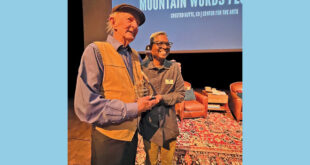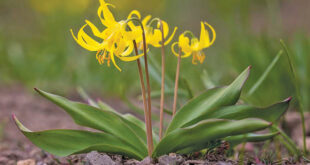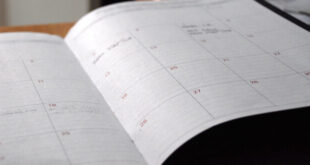The following interview appeared in the March 12, 2004 issue of the Crested Butte News.
Richie Havens has remained one of America's most respected, successful contemporary folk/soul artists since he first hit the Greenwich Village folk scene in the early 1960s. Havens is a legend, one whoís found success not only in music and film, but in political and social activism as well. He is the co-founder of the Northwinds Undersea Institute, an oceanographic museum for children on City Island in the Bronx, and the founder of the Natural Guard, an organization he describes as "a way of helping kids learn that they can play a hands-on role in affecting the environment." The Natural Guard program earned Havens the national Points of Light award, presented by Hillary Clinton.
Havens, 63, has produced 25 albums, the most recent of which is Wishing Well, released on Evangeline Recorded Works. He's currently on a 22-stop tour that will bring him to the Crested Butte Center for the Arts on Sunday, March 21.
The artist took some time this week to talk with us about his colorful past, the future of our country, the connection he has to the Crested Butte community and more.
News: I want to talk to you about what youíre doing these days, but first I want to ask you about the pastñspecifically the rumor that during Woodstock, your performance was largely impromptu.
Havens: There was one impromptu part that took place in the whole set. One moment. Just that last song, which was "Freedom." The thing about it was I was the first to arrive by a helicopter. We had the least instruments so they took us in first. They chased me for an hour to go on. I was supposed to be fifth. I ran like hell. I said, "No, you're not going to get me killed out there. Your concert is four hours late as it is." After a while I gave in. I went up and everyone got 25 minutes and I was walking off after my 25 minutes and they said, ìNo oneís here yet, would you play two moreóthree more. I went up six times and I played for two hours and 45 minutes. I played every song I knew, and then I played ìFreedom.î What happened was I was sitting there and I realized something to myself. I said you know this is the freedom that we as a generation have been looking for all of these years since the fifties' just to get together and share what weíve got without being radicalized some way. And that was the occasion. That happened to be, for us in that generation, a plateau. We rose above the underground where we were relegated by press and the intelligentsia at the time. But we rose above that in a peaceful way and thatís what we wanted to show in the first place, really consciously.
News: You're an accomplished songwriter, but youíve also found a lot of success covering songs by artists like Bob Dylan and the Beatles. Did you ever get feedback from them on your versions of their songs?
Havens: Oh yes. I met Paul and John in 1968, when they started the record companyóApple. Right around that time they came to New York and I actually got to meet them at a club because the guy who was driving them around was a guy who owned a limo and he used to drive us around from gigs to certain gigs and he arrived with them and he walked right up to my table sat down and thereís Paul and John sitting right in front of me and I couldnít say a word [laughs]. I was so awestruck I was silent, dumbstruck. But they said to me, ìWe love what you do on ëHere Comes the Sun,í and there was another one of theirs on that record 'umm' what was it? – [hums a melody] – what song is that?
News: "Eleanor Rigby."
Havens: Yes."Eleanor Rigby" Over the next year, I was in England and I got to meet most of the English bands at that time. The good part was they all hung out in one place, which was nice. We could just go after the show and hang out there. It was called the Speakeasy in London. It was really like a building that once was a speakeasy. The Who and all those guys were hanging out down there, as was Jimi Hendrix.
News: Did you know Jimi Hendrix?
Havens: Yeah [sighs] he was a really close friend. I met him in New York and sort of sent him down to the Village before he was 'Jimi Hendrix' actually. He became Jimi Hendrix after that. He was Jimmy James and the Blue Flames, his big first band.
That was down in the Village and we started out in the same place and got to know each other.
News: I read that you played at President Clintonís inauguration?
Havens: Actually a ball called the Earth Ball, and it was during the inauguration, but that particular ball was for the vice-president and him [President Clinton], too. But basically it was the vice-presidentís environmental ball. And being that thatís what I do, they thought it would be nice to have me there. They asked and I went.
News: Were either of them fans of yours?
Havens: Both, actually. I learned that much later on because our childrenís organization won the Points of Light award and it was given to us by Mrs. Clinton in Washington with the kids there and she said ìWe listen to your records,î and that was very nice to hear.
News: Do you have support for a presidential candidate right now?
Havens: I have support for Kerry. And only for the common reasonóthat things must change. Thatís it. I feel there are so many more of us out here who donít vote than there are those who do. I think this is the time when the people who do are even waking up to the things that we wouldnít become a part of. You know, those who are on the outside. Or couldnít become a part of. Iím a person whoís basically watching the becoming of America. As much as it looks like itís the dissemination of it in many ways. I see it as the becoming. I see more people around me getting to know more people around them than they ever thought they would want to, from different places in this world. I see the coming together aspect every weekend all year round as Iíve been traveling since [laughs] 1967. We have made great changes in ourselves and that was where the investment should have gone and it did.
News: On your most recent album, Wishing Well, you cover "On the Turning Awayî"by Pink Floyd and you cover a Willie Nile song which was written in memory of Jeff Buckley.
Havens: And a third "Love is Alive" by Gary Wright.
News: Who else do you listen to these days?
Havens: I listen to everyone. I'm open to it all.
News: Do you listen to hip-hop?
Havens: I do listen to it as it goes by. I'll turn on the channel and thereís someone playing and I'll watch it for awhile. Rage against the Machine was my favorite band for a long time and Eminem because they are human beings that are actually trying to let people know whatís happening to them in their lives which they find to be common in a lot of people they know. And that to me is what music is about in terms of education. If you can sing about whatís actually happening to you, you many find it's actually happening to a lot of people. And thatís what you do. You find out that it's happening to whole communities and human beings. Thatís what the sixties allowed us to do, allowed us to update our situation every month, which is great.
News: How do you pick the songs you cover?
Havens: What Iím doing is sharing songs that have changed me personally. Those are the only songs I sing. I think there's a commonness about all of it because Iím no different than anyone else to tell you the truth, and Iím living on the same planet. I may see a lot of things differently than a lot of people, but I'm not different, but I may see things they never saw. Itís a wonderful opportunity to share certain things with people who sit in front of you when you're doing a concert, because they're there. I learned a long time ago that the stage belongs to the audience, because if theyíre not in the audience, youíre not there. So thereís a respect for that place for most of us that came out of the Village I would imagine – When I get it and it hits me that way it's a message to me. Information for me. Change for me. That's why I sing it. I only sing songs that that did something for me – educated me, confirmed me in many different ways. Thatís what I do. So it's a sharing of songs that come from everywhere. The jazz world – many different worlds. Those are the songs that changed me. It's a variety of places that they come from. It might not sound like a jazz song because I'm strumming it on an acoustic guitar.
News: Youíre not just 'strumming.' You're one of the best, if not the best rhythm guitar players in the world. In addition, you bar with your thumb and, I think you play in an alternate tuning?
Havens: Yes, it's D, A, D, F#, A, and D.
News: How did you develop your technique?
Havens: I was a singer. I was originally in a doo-wop group. When I came to the Village I heard five or six songs that made me want to play. I said, "I have to get a guitar and sing these songs." I would never have opted to be on the stage by myself because I was always in the background in my doo-wop bands. I was doing baritone. I wasn't the lead singer. It was the songs that made me borrow a guitar. I tuned it to a chord because I knew doo-wop.
I could tune it to a chord and once I did that and found the other two chords, it was -Hey man, and I went on stage the next day. Never got off.
News: Iíve see footage from the 1993 Bob Dylan tribute concert in Madison Square Garden. Your performance of ìJust Like a Womanî was amazing. Just you and a guitar and no one was saying a word. What does it feel like to play a packed Madison Square Garden to a totally captivated audience?
Havens: It's interesting because, believe it or not, the sound in that place is so good I might as well be in a room with 200 people. Thatís the way I look at it. The sound is really good for a big place. The guys in the balcony hear it as well as the guys down at the bottom. Thatís good sound and that place does that. It becomes a very intimate room.
News: The room you're going to be playing here, the Crested Butte Center for the Arts, is a great room to play. It's very intimate, the sound is good and it holds about 200 people. Have you ever been to Crested Butte before?
Havens: Oh yes. I've been to Crested Butte a bunch of times. Not to sing, but I know people who live out there, actually. Lots of old friends from New York. Not musicians, just friends, people who are in the normal world. Working their gigs and having their kids out there – just wonderful people. College people actually, people I met in college.
News: What do you think of this place?
Havens: I love it out there. I've threatened to move there many times.
News: Do it, we'll get a band together.
[No response]
News: So, what can the audience expect from your performance?
Havens: Old and new. There are lots of songs from the past that I have to do or else they beat me up outside if I didnít sing them [laughs.] So there are songs like that and there are new songs. There are a couple of songs from the new CD Iím working on. It varies. It usually happens when Iím there. I know the first and last song Iím going to sing when I get up on stage for sure. What happens in between Ö happens to all of us.
News: Thank you. Have a great show.
Havens: Thank you.
 The Crested Butte News Serving the Gunnison Valley since 1999
The Crested Butte News Serving the Gunnison Valley since 1999




